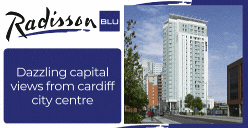In case you missed it see what’s in this section
Let's Talk
10 Facts About Relocating to Vanuatu: Essential Information for Your Move
Relocating to Vanuatu offers a unique experience filled with rich culture, stunning landscapes, and vibrant marine life. Understanding the key facts about living in this Pacific paradise can help you make a smoother transition and fully enjoy everything it has to offer. From the cost of living to the local customs, you'll find that each detail plays a critical role in your new adventure.
This archipelago is known for its warm climate and friendly communities, making it an attractive destination for those seeking a change in scenery or lifestyle. Familiarising yourself with essential considerations, such as residency options and everyday expenses, will empower you in your decision-making process.
By exploring these ten facts, you can gain valuable insights into what life in Vanuatu entails and what to expect as you embark on this exciting new chapter.
Understanding Vanuatu
Vanuatu is a unique archipelago located in the South Pacific, known for its stunning landscapes and rich cultural diversity. This overview covers important aspects such as geography, culture, and language to help you comprehend the essentials of living in this island nation.
Geographical Overview
Vanuatu consists of about 83 islands, with a total land area of approximately 12,190 square kilometres. The islands are divided into six provinces: Shefa, Tafea, Malampa, Sanma, Penama, and Torba.
The terrain is predominantly volcanic, featuring lush rainforests, rugged mountains, and beautiful coral reefs. The highest peak, Mount Tabwemasana, reaches 1,877 metres on the island of Espiritu Santo. Due to its tropical climate, Vanuatu experiences warm temperatures year-round, with a wet season from November to April.
Cultural Insights
Vanuatu has a diverse cultural heritage, with around 113 indigenous languages spoken among its inhabitants. Each island has its own customs and traditions, contributing to a rich tapestry of cultural expressions. Traditional ceremonies, dances, and crafts play a significant role in daily life.
The Melanesian culture emphasises community and family ties, with local practices often centred around communal gatherings and shared resources. You may encounter vibrant markets showcasing handmade crafts, local produce, and traditional music, offering a glimpse into the identity of the Ni-Vanuatu people.
Language and Communication
Bislama is the national language of Vanuatu, a creole English language that utilises local vocabulary and syntax. While Bislama is widely spoken, English and French are also official languages, particularly in urban areas and education.
Understanding Bislama can enhance your experience in Vanuatu, enabling you to connect with locals more effectively. Simple phrases and greetings, like "Halo" (Hello) and "Tank yu" (Thank you), can foster goodwill and help build relationships within the community.
Preparation for Relocation
Preparing for a move to Vanuatu involves understanding the visa process, finding suitable accommodation, and ensuring healthcare needs are met. These steps are essential for a smooth transition.
Visa Requirements and Immigration Process
To relocate to Vanuatu, you need to apply for a visa appropriate for your situation. The most common options include a long-stay visa for retirees and a business visa for entrepreneurs. You must provide documentation such as police clearance, proof of income, and health insurance.
The application process typically takes several weeks. It is advisable to check the latest visa regulations on the Vanuatu government's official immigration website. Costs for visa applications can vary, so budget accordingly. Ensure all documents are translated into English and notarised to avoid delays. You can also find out more about the Solomon Islands Citizenship Program here on Global Residence Index here
Finding Accommodation
Finding accommodation in Vanuatu may be quite different from what you are accustomed to. Rental prices fluctuate based on location, with Port Vila being pricier than rural areas. Research listings online through local real estate websites and community groups.
Make sure to visit properties before signing any leases. Consider short-term rentals initially to get a feel for different areas. Negotiating rental terms is common, so don't hesitate to discuss the price or terms with landlords. Be mindful of any additional fees such as maintenance or utilities.
Healthcare and Vaccinations
Access to healthcare in Vanuatu varies by location, with most facilities in urban areas. Before moving, ensure you have a good health insurance plan that covers medical evacuation, as advanced care may not be readily available.
Vaccinations are recommended for diseases like hepatitis A and typhoid. Consult with your healthcare provider to get up to date on required immunisations and any medications you might need. Packing a basic first aid kit and any prescription medications for the move is also wise.
Living in Vanuatu
Living in Vanuatu offers a unique lifestyle characterised by stunning natural beauty and a distinct blend of local cultures. Key aspects to consider include the cost of living, educational opportunities, and employment options available in the islands.
Cost of Living and Finances
The cost of living in Vanuatu can vary depending on location. In Port Vila, prices for groceries, rent, and utilities can be higher than in rural areas. For example, monthly rent for a one-bedroom apartment in the city typically ranges from AUD 800 to AUD 1,200.
Basic groceries can be expensive due to import costs. Items such as fruits, vegetables, and meats are usually more affordable, especially when sourced locally. It's advisable to budget around AUD 500 to AUD 700 per month for a single person, which includes food and entertainment expenses. Familiarising yourself with local prices is essential for effective financial planning.
Education and Schooling
Vanuatu has a variety of educational institutions, from preschool to secondary level. Public schools are available and generally free, though they may lack resources. Tuition-based private schools offer a more comprehensive education with better facilities.
International schools in Port Vila provide programmes that align with Australian or British curricula, typically charging fees between AUD 5,000 and AUD 8,000 per year. Language instruction, particularly in Bislama, French, and English, is common. Enrolling your children in the right institution will be key to their educational success.
Job Market and Employment Opportunities
The job market in Vanuatu primarily revolves around tourism, agriculture, and public services. Tour guides, hospitality workers, and agricultural technicians are in demand, especially in tourist hotspots. Salaries in Vanuatu are relatively low, averaging around AUD 800 to AUD 1,500 monthly.
Foreigners often face restrictions in job availability, particularly in skilled positions dominated by locals. Networking can significantly improve job prospects. Consider options like volunteering or internships to gain local experience and connections, helping you to navigate the competitive landscape.
Climate and Environment
Vanuatu's climate is characterised by tropical weather patterns, coupled with a strong emphasis on environmental sustainability. Understanding the weather and the ecological practices in place can greatly assist you in making informed decisions about relocating to this picturesque island nation.
Weather Patterns
Vanuatu experiences a tropical climate with seasonal variations. The average temperature ranges from 25°C to 30°C throughout the year. The wet season typically spans from November to April, bringing heavier rainfall and humidity. Conversely, the dry season lasts from May to October, offering more pleasant conditions for outdoor activities.
Cyclones can occur, mainly between December and April, and it's prudent to stay informed during this period. Sunshine is abundant year-round, with up to 12 hours of daylight daily, making it ideal for activities like hiking, snorkelling, and beach exploration.
Environmental Sustainability
Vanuatu has a strong commitment to preserving its natural environment. The government promotes sustainable practices, aiming to balance development and conservation. One notable initiative is the blue economy, focusing on sustainable marine resource management.
Awareness of plastic waste is rising, with many communities working towards reducing single-use plastic. Numerous conservation programs protect native wildlife and habitats. Engaging with local organisations can provide opportunities for you to participate in sustainability efforts. This commitment enhances the living experience by ensuring a healthier environment and the preservation of Vanuatu's rich biodiversity.
Settling In
When relocating to Vanuatu, integrating into the local community and understanding transportation options are key components for a smooth transition. Familiarising yourself with these aspects can significantly enhance your experience in this beautiful archipelago.
Community Integration
Arriving in Vanuatu, you'll find a variety of ways to become part of the local community. Engaging in traditional customs, such as participating in community festivals and local markets, can help you connect with residents. These events often include music, arts, and local cuisine, offering unique insights into the culture.
Language can also be an aspect to navigate. While Bislama, English, and French are official languages, knowing basic Bislama phrases can help you build relationships. Consider joining local clubs or organisations, where you can meet fellow expatriates and locals who share your interests.
Transportation and Mobility
Understanding the transportation system in Vanuatu is essential for daily life. The main island, Efate, has a central bus service that operates on a fixed route, connecting towns and villages. The affordability of buses makes them a popular choice for getting around.
For more personalised travel, renting a vehicle or using taxis is recommended. Note that road conditions can vary significantly, and driving practices might differ from what you're accustomed to. Regular ferries connect other islands, providing an efficient way to explore the archipelago. It’s wise to keep travel schedules in mind, as services may not run as frequently on weekends and public holidays.
Weather in Cardiff
Listings

















